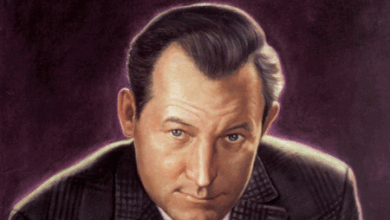VA — Poulenc (2022)

FLAC (tracks) / MP3 320 kbps | Classical | 3h 41 min | 830 / 507 MB
Francis Poulenc was the leading composer of Les Six, the French group devoted to turning music away from Impressionism, formality, and intellectualism. He wrote in a direct and tuneful manner, often juxtaposing the witty and ironic with the senntal or melancholy. He heavily favored diatonic and modal textures over chromatic writing. His music also shows many elements of pandiatonicism, introduced around 1920 by Stravinsky, whose influence can be heard in some of Poulenc\’s compositions, such as the religious choral work Gloria. Poulenc is regarded as one of the most important 20th century composers of religious music, and in the realm of the French art song, he is also a major voice of his . Poulenc was also a pianist of considerable ability. Poulenc was born in Paris on January 7, 1899, into a wealthy family of pharmaceutical magnates. The agrochal giant Rhone-Poulenc is the present-day corporation started by his forebears. His mother was a talented amateur pianist who began giving him piano lessons at age five. Later, Poulenc studied with a niece of César Franck and then with the ent Spanish virtuoso Ricardo Viñes, for whom he would later write music. At age eighteen, Poulenc wrote Rapsodie Nègre for baritone and chamber ensemble, which made him an overnight sensation in France. The young composer served in the military during the years 1918 to 1921, during which he composed the popular Trois Mouvements Perpétuels (1918). By 1920, Les Six — Georges Auric, Arthur Honr, Darius Milhaud, Germaine Tailleferre (the sextet\’s lone female representative), Louis Durey, and Francis Poulenc — had begun making its impression on the music world. In 1923, Poulenc wrote the ballet Les Biches, which Diaghilev staged the following year with great success, the public finding its mixture of lightness, gaiety, and occasional moments of senntality irresistible. Poulenc continued writing at a fairly prolific pace in the late \’20s and early \’30s, producing many piano compositions, songs, and other works. In 1935, he rekindled his friendship with baritone Pierre Bernac, thus launching a productive and enduring professional relationship. He also returned to the Roman Catholic Church that year when close friend Pierre-Octave Ferroud was killed in an automobile accident. Thereafter, he wrote many important works of a religious nature, the first of which were Litanies à la Vierge Noire, for soloists, chorus, and organ, and Mass in G for mixed a cappella chorus, both from 1936. During World War II, Poulenc remained in German-occupied France, writing music of an antiwar or defiantly anti-Nazi bent, somes writing songs on texts by banned authors, such as Lorca. He also wrote a ballet, Les Animaux Modèles (1940-1941), Sonata for violin and piano (1942-1943; rev. 1949) dedicated to Lorca, and the masterful Figure Humaine (1943), a choral cantata which is a hymn to freedom. In the postwar years, Poulenc turned out his Sinfonietta (1947) and Piano Concerto (1949), both not entirely successful. In the period from 1953 to 1956, Poulenc produced his most ambitious work, the opera Dialogue des Carmelites, considered by many the greatest French opera of the 20th century. Poulenc finished his last opera in 1958, La Voix Humaine, a work whose lone character talks (sings) on the phone to her deserting lover for the work\’s 45-minute length. Notable also in this period is his Gloria (1959), a work shorn of sanctimony and rich in communicative simplicity and fervent religiosity. Poulenc\’s last major work was his Sonata for Oboe and Piano in 1962, dedicated to the memory of Prokofiev, whom he had befriended in the 1920s. Poulenc died suddenly of a heart attack on January 30, 1963.
01 R.T.F. Choeur De Radio France — 1. Gloria
02 R.T.F. Choeur De Radio France — 2. Laudamus te
03 Françoise Pollet — 3. Domine Deus
04 R.T.F. Choeur De Radio France — 4. Domini Fili Unite
05 Françoise Pollet — 5. Domine Deus, Agnus Dei
06 Françoise Pollet — 6. Qui sedes ad dexteram Patris
07 Peter Hurford — Andante
08 Peter Hurford — Allegro giocoso
09 Peter Hurford — Subito andante moderato
10 Peter Hurford — Tempo allegro, molto agitato
11 Peter Hurford — Très calme. Lent
12 Peter Hurford — Tempo de l\’allegro initial
13 Peter Hurford — Tempo introduction. Largo
14 Patrick Gallois — 1. Allegro malincolico
15 Patrick Gallois — 2. Cantilena
16 Patrick Gallois — 3. Presto giocoso
17 Pascal Rogé — Poulenc: Pastourelle (de \»L\’Eventail de Jeanne\»), FP 45
18 Pascal Rogé — 1. Allegretto
19 Pascal Rogé — 2. Andante con moto
20 Pascal Rogé — 3. Rondo à la Française
21 R.T.F. Maitrise De Radio France — Poulenc: Litanies à la vierge noire
22 R.T.F. Choeur De Radio France — 1. Stabat Mater dolorosa
23 R.T.F. Choeur De Radio France — 2. Cujus animam gementem
24 R.T.F. Choeur De Radio France — 3. O quam tristis
25 R.T.F. Choeur De Radio France — 4. Quae moerebat
26 R.T.F. Choeur De Radio France — 5. Quis est homo
27 Françoise Pollet — 6. Vidit suum
28 R.T.F. Choeur De Radio France — 7. Eja mater
29 R.T.F. Choeur De Radio France — 8. Fac ut ardeat
30 R.T.F. Choeur De Radio France — 9. Sancta mater
31 Françoise Pollet — 10. Fac ut portem
32 R.T.F. Choeur De Radio France — 11. Inflammatus et accensus
33 Françoise Pollet — 12. Quando corpus
34 Pascal Rogé — Poulenc: Mélancolie, FP 105
35 Sylviane Deferne — 1. Allegro ma non troppo
36 Sylviane Deferne — 2. Larghetto
37 Sylviane Deferne — 3. Finale (Allegro molto)
38 Orchestre National de France — Rondeau
39 Orchestre National de France — Adagietto
40 Orchestre National de France — Rag — Mazurka
41 Orchestre National de France — Andantino
42 Orchestre National de France — Final
43 Pascal Rogé — Poulenc: Improvisation No. 15 in C Minor, FP 176
44 Pascal Rogé — 1. Allegro vivace
45 Pascal Rogé — 2. Divertissement
46 Pascal Rogé — 3. Finale
47 Pascal Rogé — Poulenc: Thème varié, FP 151
48 Pascal Rogé — Allegro molto
49 Pascal Rogé — Andante
50 Pascal Rogé — Finale







